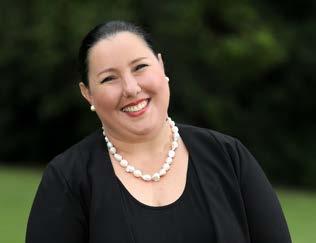
2 minute read
The King’s Institute Research Symposium
There is a long tradition of conversation in research and philosophy. When we come together to listen to others, we can question our own beliefs and assumptions. When we demonstrate to others that we are willing to take the time to hear what they have to share with us, we show remarkable respect. It is through conversation that we can agree, disagree, we can seek clarification and justification, we can grow to become more nuanced and sophisticated, and we can be led to more exciting thought.
The core of our daily work is harnessed and captured through conversations. For this reason, many believe that teaching is more of an art than something that can be driven by research and science. According to Stanovich (2003), it is better to think of teaching as a craft, rather than an art. Craft knowledge is superior to alternative forms of knowledge such as superstition and folklore because, among other things, craft knowledge is compatible with scientific knowledge and can be more easily integrated with it. One could argue that in this age of education reform and accountability, educators are being asked to demonstrate that their craft has been integrated with science, that their instructional models, methods, and materials can be likened to the evidence a physician should be able to produce showing that a specific treatment will be effective (Carolina, 2009). As with medicine, constructing teaching practice on a firm foundation of philosophy and research does not mean denying the craft aspects of teaching.
Being able to access mechanisms that evaluate claims about teaching methods and to recognise research and its findings, is especially important for teachers because they are often confronted with the view that there is no such thing as best practice in education, that there are no ways to verify what works best, that teachers should base their practice on intuition, or that the latest fad must be the best way to teach. The “anything goes” mentality actually represents a threat to teachers’ professional autonomy. It provides a fertile environment for snake oil salesmen to sell untested educational “remedies” that are not supported by an established research base.
The King’s Institute is committed to providing teachers, staff, and our community the very best research and insight from intersecting disciplines on the learning that occurs every day here at King’s. Our annual Research Symposium in 2020 provided an opportunity to reflect, share, and celebrate how those immediately connected to our community are contributing to global thought leadership of education, teaching, and learning. This year we had 15 presenters from The King’s School and four different universities (Macquarie, Sydney, UNSW, & CSU) present their cutting-edge projects across a diversity of interests and disciplines.
Dean Dudley Director of The King’s Institute









